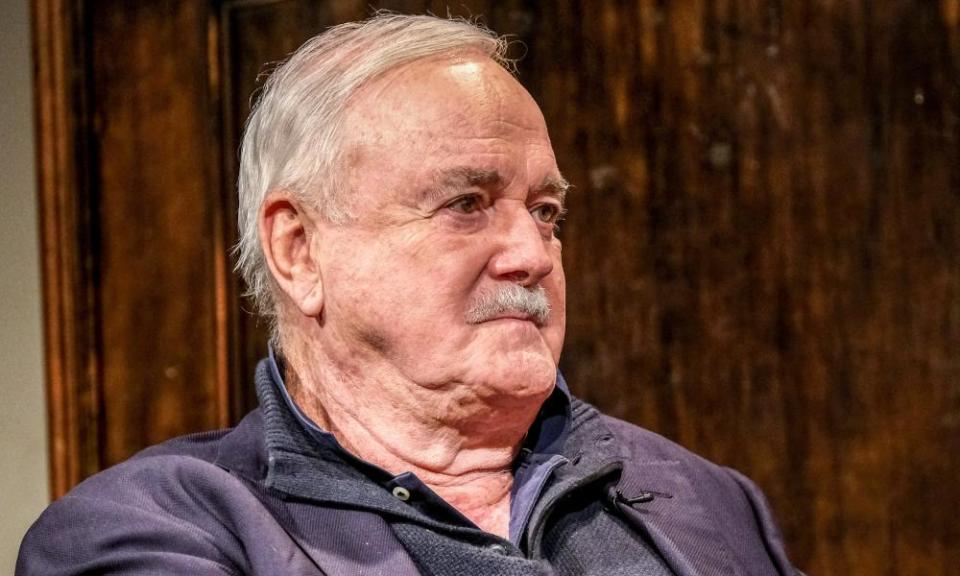John Cleese: Why There Is No Hope review – we're all idiots, says Mr Gloomy

The decision to postpone lockdown easing scotched plans to admit a socially distanced audience to John Cleese’s first ever global livestream. So the event, booms Cleese across rows of unoccupied seats in London’s Cadogan Hall, resembles nothing more than the annual convention of the Michael Palin fan club.
The latter might be a jauntier affair. Cleese’s show is called Why There Is No Hope, and is less comedy show than lecture on people’s, and society’s, inescapable idiocy. None of us know what we’re doing, argues Cleese. Even clever people are profoundly irrational. And the people who seek and gain power are the worst of all. This gloomy thesis is footnoted with stats and choice quotes from a host who clearly knows – and cares – whereof he speaks. It’s also handed down to us by Cleese as if on tablets of stone – ironically, given that we’re being urged to feel less certain in our certitude.
The best we can probably do, Cleese concludes, is be “very, very nice to people around us”. This clearly does not include TV producers (who “haven’t a fucking clue what they’re talking about”) and critics, who are likewise excoriated as Cleese reprises one career triumph after another. Let it go, John! But he won’t – not least because the ineptitude of all those who failed to recognise his genius demonstrates “the Dunning-Kruger effect” (people with low ability at a task overestimate their ability) as well as Cleese’s late psychiatrist pal Robin Skynner’s assertion that only 10-15% of professionals know what they’re doing.
The presiding tone – patrician dismissal of everyone else’s imbecility – is amusing enough, and no stretch for Cleese. He’s very funny on organised religion making it up as it goes along. And the erudition is a pleasure in itself: I loved Alexander Pope’s “if you want to know what God thinks of money, look at the people he gives it to”.
Of course, there’s a dose of what you always get with Cleese these days: alimony gags, a bit of PC-baiting. The humility he demands of others is nowhere in evidence. But Why There Is No Hope is more uplifting than it sounds. Our host may be pessimistic about our capacity to make the world better. But he reserves a small space for idealism, in a show notable for Cleese’s intellectual enthusiasm and – surprisingly, given how little we do to earn it – his faith in his audience’s intelligence.

